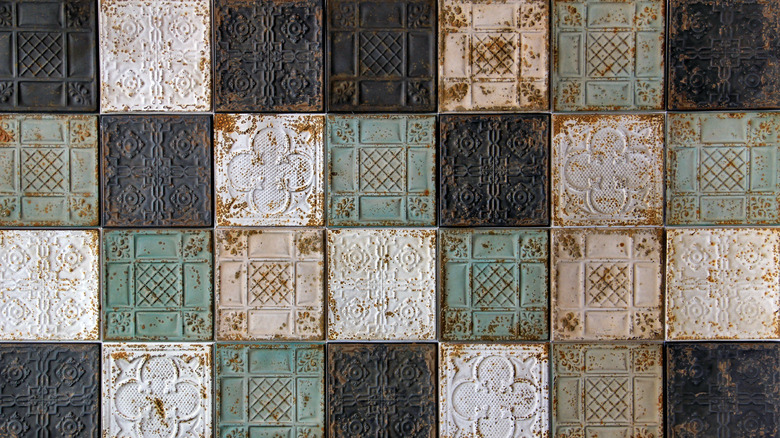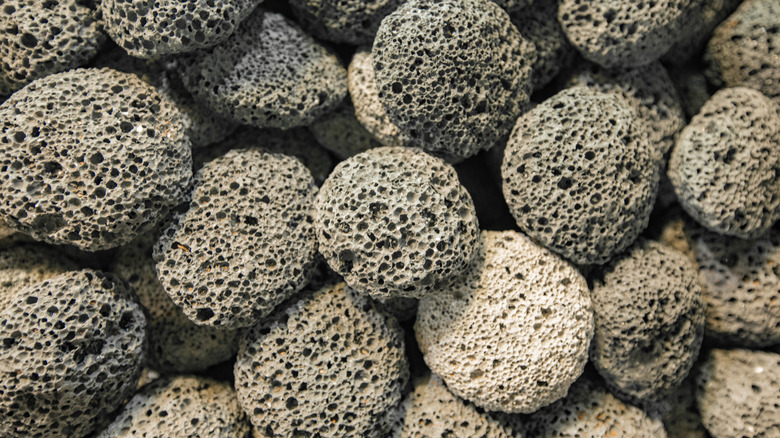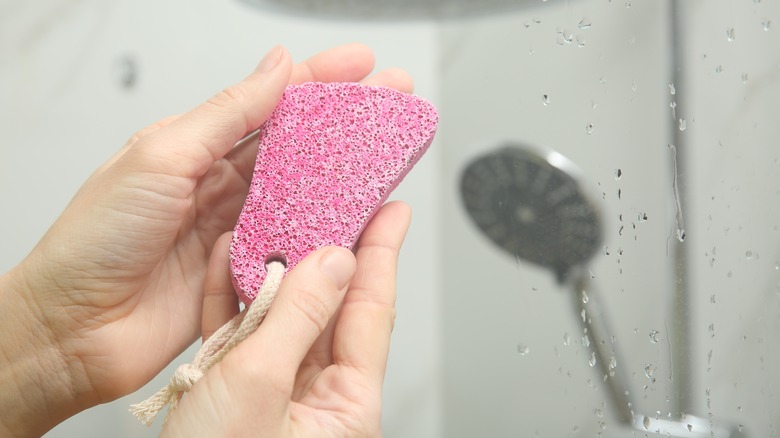The Best Method For Removing Rust From Ceramic Tile
If you have ceramic tiles in your home, you are likely familiar with the burden of cleaning them. Common in many bathrooms and kitchens, ceramic tiles and the grout between them are prone to a variety of dirt, grime, and rust build up. While they are not inherently prone to rust, as rust is typically associated with metals, ceramic tiles can become stained if there are metal components or fixtures near them, such as metal grout or rusty water pipes. In this case, the rust can transfer onto the tiles and cause unsightly stains. It's important to remove rust from ceramic tiles because it can both diminish the aesthetic appeal of the surface and continue to spread, potentially causing damage to the ceramic tile, leading to costly repairs or replacements.
Regular maintenance and rust removal can help preserve the longevity and appearance of ceramic tiles. One great method of removing stubborn rust stains from your tiles is by using a pumice stone.
Pumice stones are formed from volcanic lava that cools rapidly, trapping gas bubbles within the rock. These stones are typically found near volcanic areas or in regions with volcanic activity. Pumice stones are great for cleaning due to their unique properties. They are lightweight, porous, and abrasive, making them effective in removing dirt, grime, and stains from various surfaces. Therefore, a fresh pumice stone might be the secret to a sparkling bathroom, helping you to scrub away those nasty rust stains from your ceramic tiles.
Using a pumice stone to remove rust
Once you've acquired your pumice stone, using it to clean up your rusty ceramic tiles is super easy. Before using the pumice stone, soak it in water for a few minutes. This will soften the stone and make it more pliable for use. Inspect the ceramic tiles and identify the areas with rust stains. It is important to focus only on the rusted areas to avoid unnecessary scrubbing and potential damage to the tile. Using light pressure, gently scrub the rusted areas with the wet pumice stone. Make small circular motions to gradually remove the rust stains. Be careful not to apply too much pressure, as this could scratch the ceramic surface. After scrubbing, rinse the tile with water to remove any residue. If the rust stains are still visible, repeat the process until the desired results are achieved. It may take several attempts to completely remove stubborn rust stains.
While pumice stones are generally safe to use on ceramic tiles, it's important to follow some precautions. Always wet the pumice stone before use to soften the stone and reduce the risk of scratching the ceramic surface. Before using the pumice stone on the entire rusted area, test it in a small, inconspicuous area of the tile to ensure the stone does not cause any damage. Finally, it is not recommended to use pumice stones for delicate or glazed surfaces. These surfaces are more prone to scratching, and alternative methods should be considered.
Why a pumice stone works well
When it comes to rust removal, using a pumice stone offers several advantages over other methods. First, a pumice stone is a natural volcanic rock that is lightweight and porous. Its porous nature allows it to absorb water, making it an ideal tool for rust removal. When the pumice stone is wet, it becomes softer and more pliable, allowing it to conform to the shape of the tile and reach into crevices where rust may be present. This flexibility ensures that the pumice stone can effectively remove rust from even the most intricate patterns on ceramic tiles.
Secondly, the abrasive nature of a pumice stone makes it highly efficient in removing rust. The rough texture of the stone allows it to gently scrub away the rust without causing damage to the ceramic tile. Unlike harsh chemical cleaners or abrasive scrub brushes, a pumice stone provides a gentle yet effective approach to rust removal. It can effectively remove rust stains without scratching or etching the surface of the tile.
Furthermore, using a pumice stone is a cost-effective and environmentally friendly method of rust removal. Unlike chemical cleaners that may contain harmful ingredients, a pumice stone requires only water for effective rust removal. It is a natural and non-toxic solution that does not pose any health risks. Additionally, a pumice stone is a durable tool that can be reused multiple times, making it a sustainable choice for rust removal.


